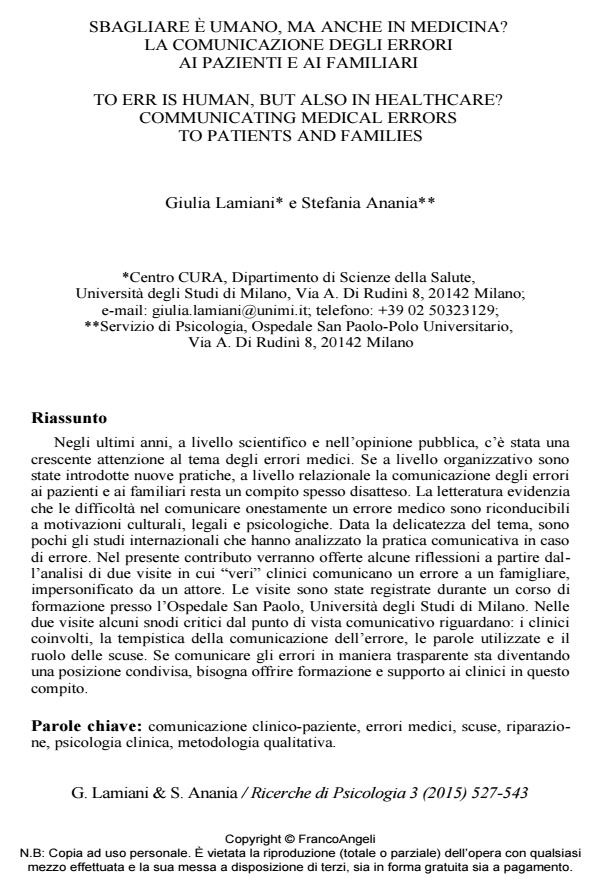To err is human, but also in healthcare? Communicating medical errors to patients and families
Journal title RICERCHE DI PSICOLOGIA
Author/s Giulia Lamiani, Stefania Anania
Publishing Year 2015 Issue 2015/3
Language Italian Pages 17 P. 527-543 File size 197 KB
DOI 10.3280/RIP2015-003006
DOI is like a bar code for intellectual property: to have more infomation
click here
Below, you can see the article first page
If you want to buy this article in PDF format, you can do it, following the instructions to buy download credits

FrancoAngeli is member of Publishers International Linking Association, Inc (PILA), a not-for-profit association which run the CrossRef service enabling links to and from online scholarly content.
In the last ten years the problem of medical errors received an increasing attention in the public and scientific debate. Although new organizational practices have been introduced to decrease medical error, communicating it to patients and families remains a dreaded and avoided practice. Literature highlights that there are cultural, legal and psychological issues that prevent clinicians from honestly disclosing medical errors to patients. Given the sensitivity of the research topic, few international studies analyzed the communication during error disclosure. In this work we analyze two consultations in which "real" clinicians disclose a medical error to a family member portrayed by an actor. The consultations were collected during an educational workshop on disclosure of medical error at San Paolo Hospital, University of Milan. The considerations suggested by the analysis of the consultations regard the clinicians involved, the timing of disclosure, the words used to communicate, and the role of apologies. If effectively disclosing medical errors is becoming a benchmark of good practice, training and emotional support should be offered to clinicians.
Keywords: Clinician-patient communication, medical error, apology, reparation, clinical psychology, qualitative research methodology
Giulia Lamiani, Stefania Anania, Sbagliare è umano, ma anche in medicina? La comunicazione degli errori ai pazienti e ai familiari in "RICERCHE DI PSICOLOGIA " 3/2015, pp 527-543, DOI: 10.3280/RIP2015-003006